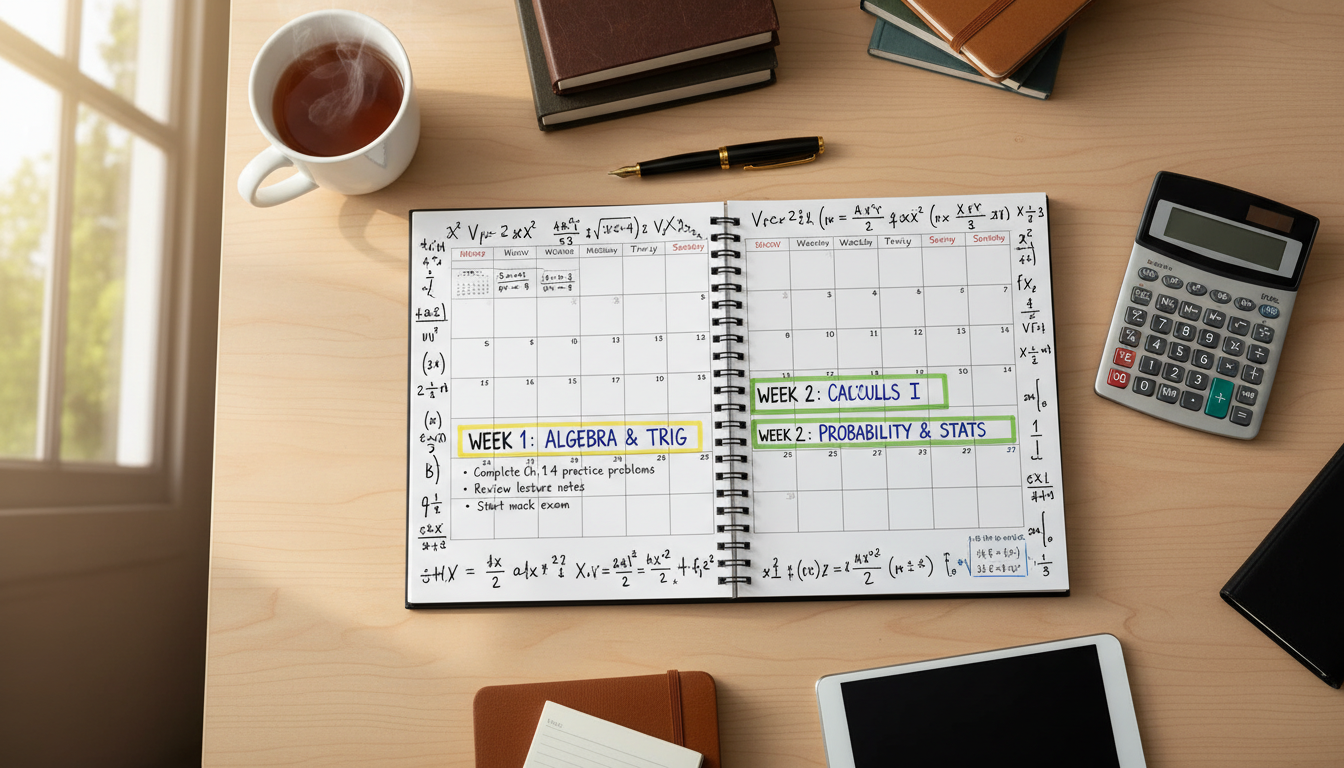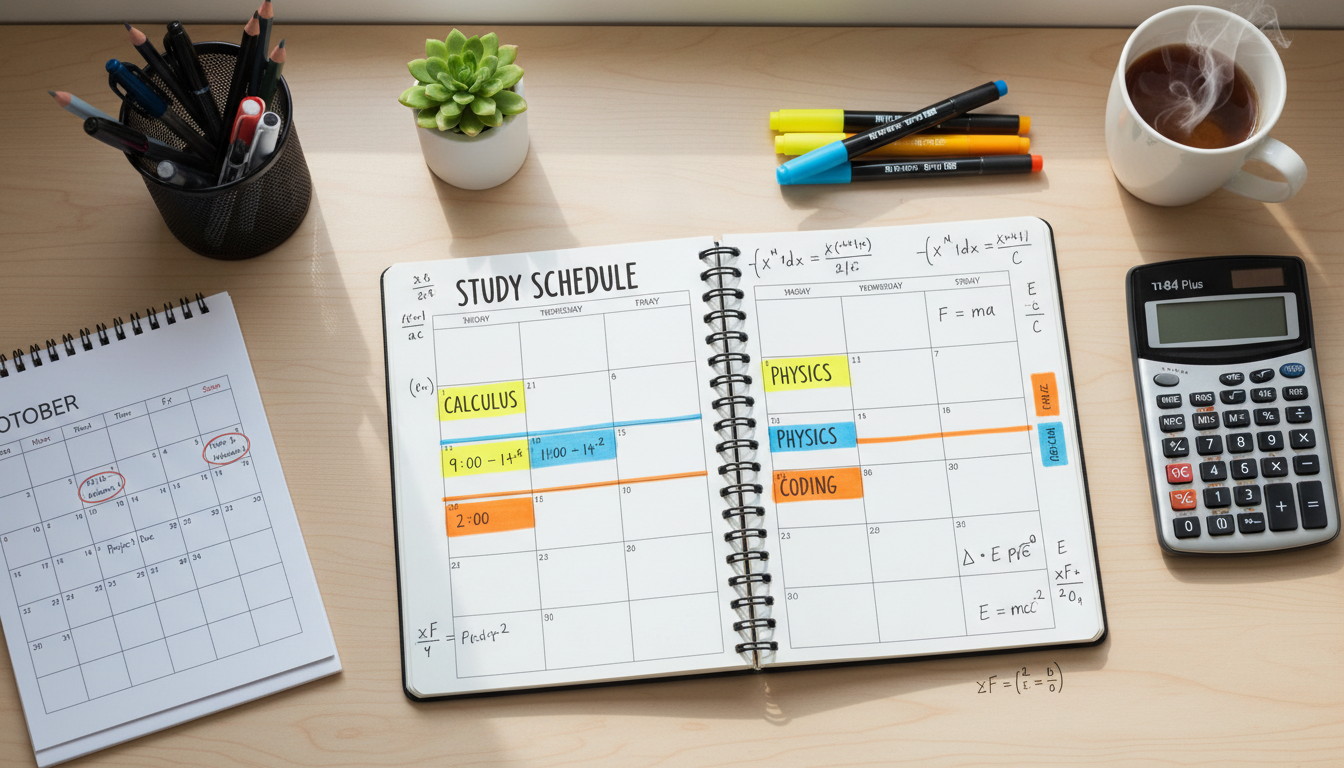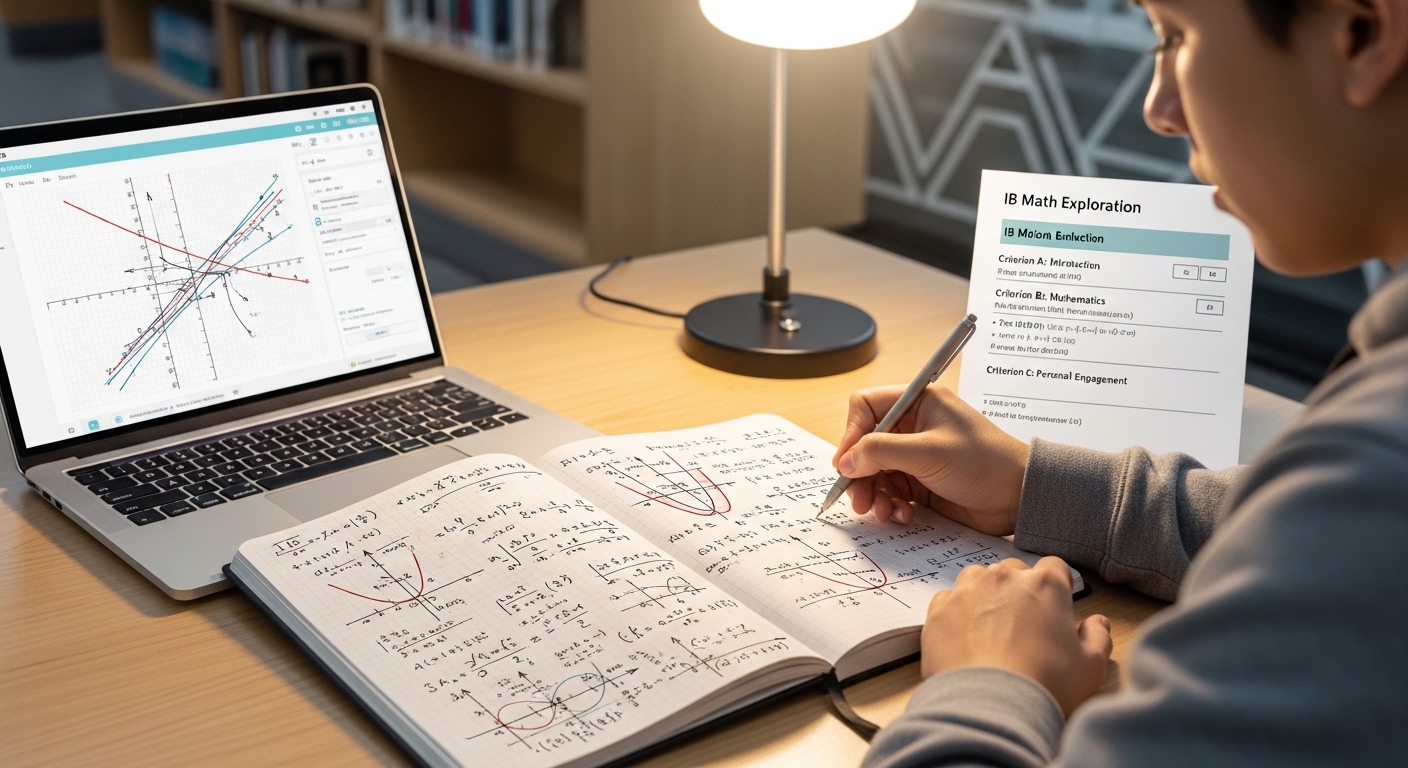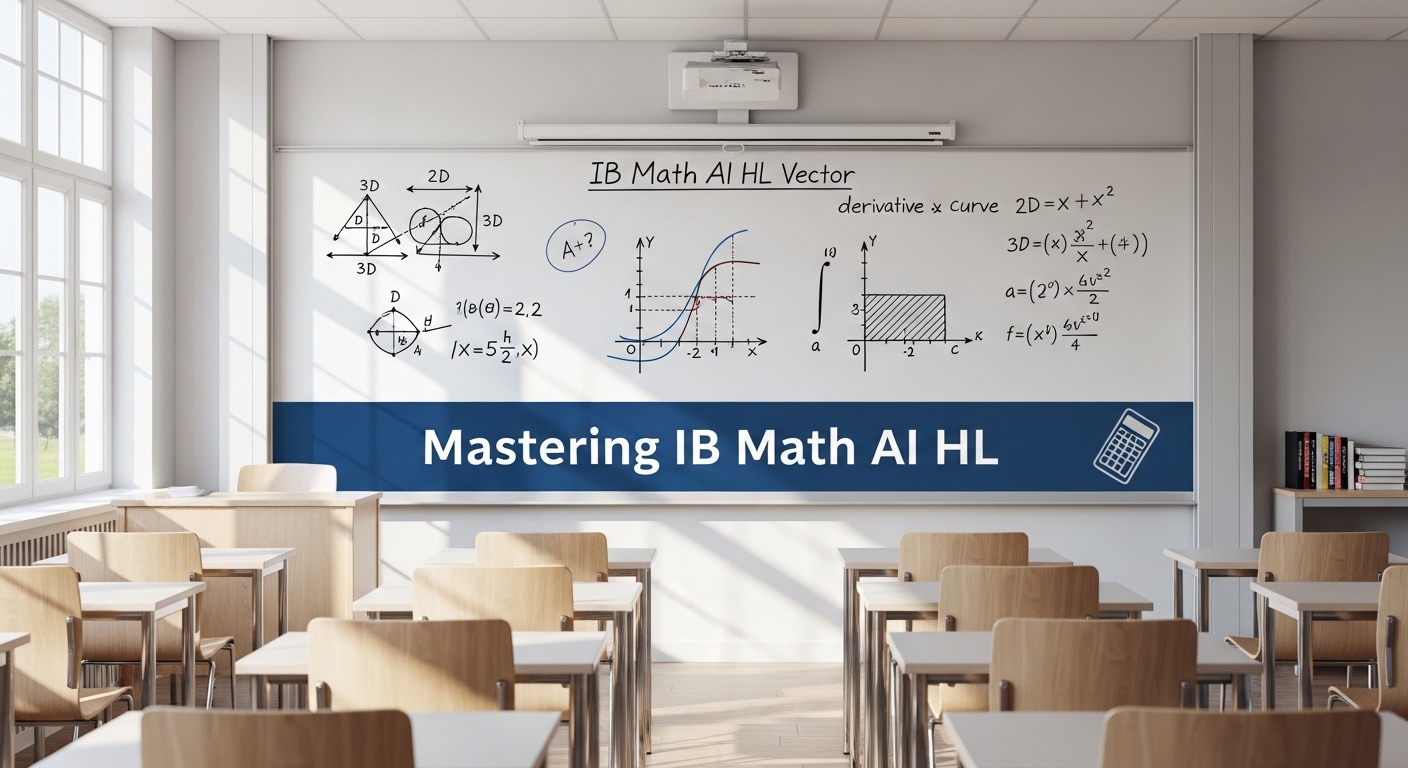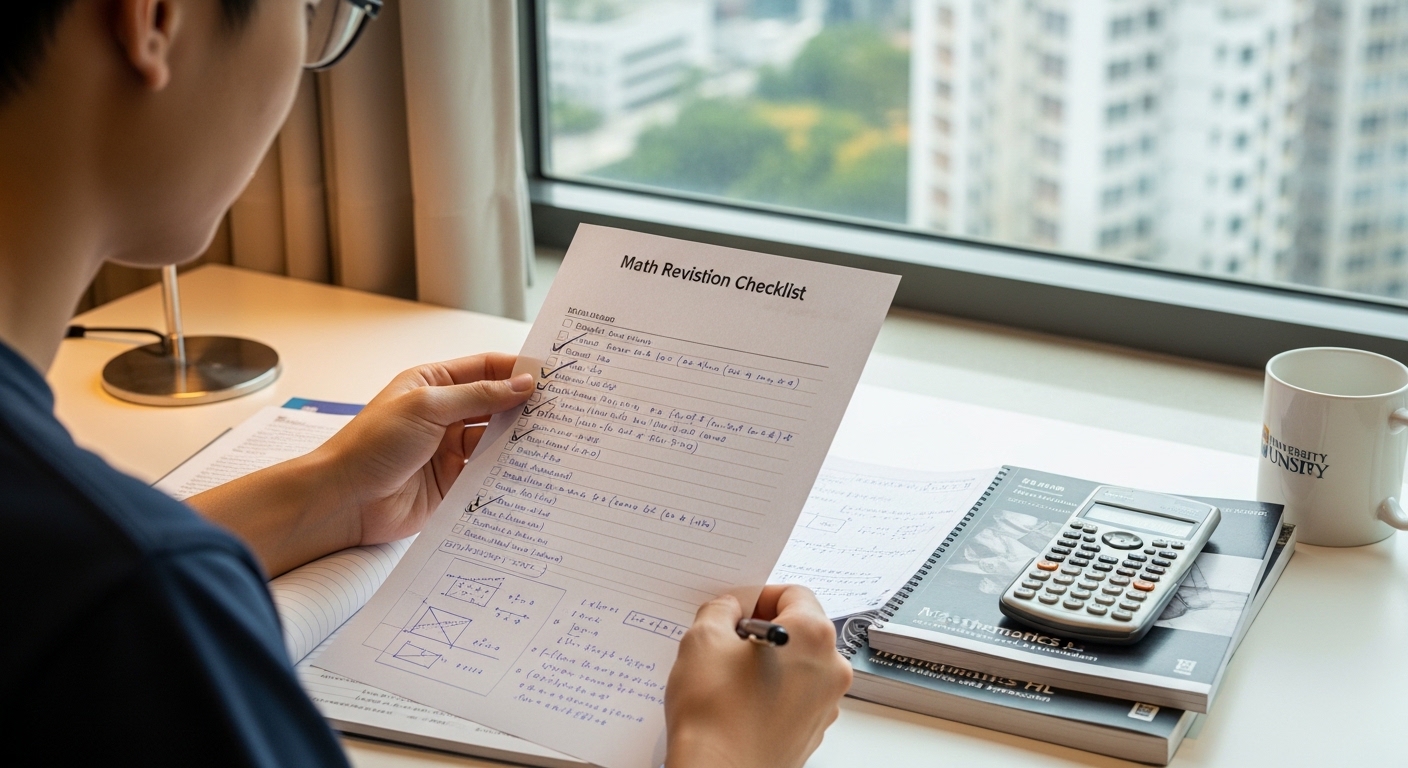Introduction
So, the GCSE maths exam is right around the corner — and you’re running out of time.
Don’t panic. With the right last-minute GCSE maths revision hacks, you can still make meaningful progress and secure a higher grade.
This guide is designed for students who have just weeks or days left before their exam. You’ll learn how to prioritize topics, revise efficiently, and avoid burnout, even when time is short.
By using focused strategies and practical tools, you can turn your final revision push into a genuine grade booster.
Table of Contents
Setting Priorities
When time is limited, the key is not to study everything — but to study what matters most.
Focus your efforts on high-value topics that appear most often in past papers, such as:
- Algebra and equations
- Fractions, decimals, and percentages
- Geometry and angles
- Probability and statistics
- Ratio and proportion
Tip: Scan through the last 3–5 years of exam papers to spot question patterns. You’ll see the same core topics appear repeatedly.
Create a Smart Revision Plan
A clear plan keeps you calm and productive. Even one week is enough with the right structure.
Here’s an example 7-day last-minute revision timetable:
| Day | Focus Area | Tasks |
|---|
| Monday | Algebra | Formula manipulation, solving equations |
| Tuesday | Geometry | Area, volume, and transformations |
| Wednesday | Fractions & Percentages | Practice conversion questions |
| Thursday | Probability | Tree diagrams, independent events |
| Friday | Statistics | Graphs, averages, data interpretation |
| Saturday | Mixed Practice | Solve mock papers under timed conditions |
| Sunday | Review | Go over mistakes, memorize formulas |
Stick to short bursts of focused 40-minute sessions with 10-minute breaks to keep your concentration high.
Effective Revision Hacks
Let’s make every study session count:
- Use Active Recall: Test yourself, don’t just reread notes.
- Practice Under Exam Conditions: Time yourself to simulate pressure.
- Use Flashcards: Perfect for quick formula revision.
- Group Similar Topics: Tackle related concepts together to reinforce learning.
- Teach Someone Else: Explaining a concept is the best way to remember it.
Tools like online quiz banks and formula sheets make this process faster and more interactive.
Choosing the Right Learning Approach for Last-Minute GCSE Maths Revision
Not every student learns the same way. Choosing the right method can dramatically improve your focus and results — especially when the clock is ticking.
Self-Learning
If you’re an independent learner who values flexibility, self-learning can be your secret weapon.
- Access a library of video lessons, exercises, and practice work anytime.
- Study at your own pace — pause, rewind, or repeat until it clicks.
- Perfect for building confidence in weaker areas and revising your foundations.
- A cost-effective option for students who prefer self-paced progress.
Tip: Self-learning works best when you set small, measurable goals for each session (e.g., “Master quadratic equations in 1 hour”).
Group Learning
If you’re more social or need structure, group learning is an engaging option.
- Attend live classes or virtual study groups with other students.
- Ask questions, discuss tricky problems, and see different solving strategies.
- Keep up motivation with regular sessions and shared progress.
- Combines affordability with the benefits of guided instruction.
Best For: Students who enjoy accountability, teamwork, and collaborative discussion.
One-to-One Sessions
When every mark matters, personalized tutoring can be game-changing.
- The tutor focuses solely on your strengths and weaknesses.
- Lessons are fully customized to your pace and goals.
- Ideal for rapid progress and focused exam preparation.
- Higher investment, but the results are faster and more predictable.
Perfect For: Students who need targeted help or want to turn a borderline grade into a solid pass or distinction.
Practice Smart, Not Hard
At this stage, past papers are your best friend.
Use them to:
- Identify gaps quickly
- Practice applying formulas
- Understand exam timing
Top Tip: Review mark schemes after each paper to learn exactly what examiners reward.
You can also use examiner reports to avoid the mistakes most students make every year — they’re a goldmine of insight.
Managing Stress and Sleep
A tired brain can’t perform at its best.
Get at least 7–8 hours of sleep, eat balanced meals, and take short breaks between sessions.
Try 5-minute breathing exercises before studying — they calm your nerves and improve focus instantly.
Remember, confidence comes from clarity, not cramming.
Free Resources to Support Your Revision
There are many excellent online GCSE maths platforms and YouTube channels offering:
- Formula sheets and revision notes
- Video walkthroughs for past papers
- Timed mock exams
- Topic quizzes and mini-assessments
You can also explore Mathzem.com, which offers free GCSE maths revision materials, practice exercises, and structured topic guides designed by expert tutors.
FAQs About Last-Minute GCSE Maths Revision
Can I really improve my GCSE maths grade in a few weeks?
Yes, with targeted revision and consistent practice, improvement is absolutely possible.
Should I focus on learning new topics or revising old ones?
Prioritize revision of high-weight topics and solidify your weak areas.
How many hours should I study each day?
Around 3–4 focused hours per day with breaks, avoid burnout.
Are online resources enough without a tutor?
Yes, if you’re disciplined and use interactive tools effectively.
Conclusion
You don’t need months of preparation to make a difference — you just need focus, strategy, and a clear plan.
By using these last-minute GCSE maths revision hacks, you’ll strengthen your problem-solving skills and boost exam confidence.
Whether you’re self-studying, learning in a group, or booking one-to-one sessions, remember: every minute counts.
Start your revision today and explore free GCSE maths resources available online — including interactive lessons and past paper walkthroughs at Mathzem.com

